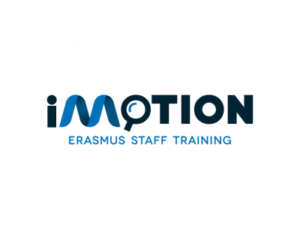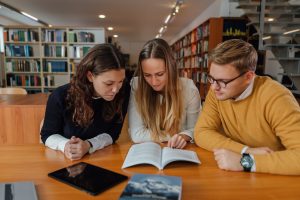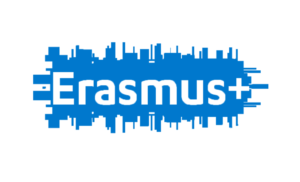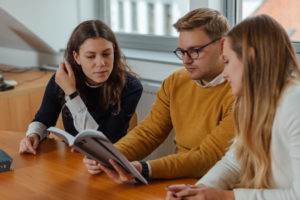
Erasmus+
- Domov
- >
- Mednarodno sodelovanje
- >
- Erasmus+
Splošne informacije
Erasmus+ je program Evropske unije na področju izobraževanja, usposabljanja, mladine in športa za obdobje 2021–2027. Erasmus+ je ključno orodje EU, ki bo uresničeval cilje in smernice dokumenta Evropski izobraževalni prostor (European Education Area) z namenom priprave Evrope na digitalne in zelene spremembe s sodelovanjem vseh članic EU.
Namen programa Erasmus+ je dvig kakovosti izobraževanja in usposabljanja ter s tem krepitev socialne kohezije in konkurenčnosti gospodarstva Unije. Z visokokakovostnim, vključujočim izobraževanjem in usposabljanjem ter priložnostnim in neformalnim učenjem se mladim in udeležencem vseh starosti zagotovijo kvalifikacije in spretnosti, potrebne za njihovo pomembno sodelovanje v demokratični družbi, medkulturno razumevanje in uspešne prehode na trgu dela.
Erasmus+ na podlagi uspeha Erasmus+ programa v obdobju 2014–2020 krepi svoja prizadevanja za povečanje priložnosti, ki so na voljo več udeležencem in širšemu krogu organizacij, pri čemer je osredotočen na kvalitativni učinek ter prispeva k bolj vključujočim, povezanim, zelenim in digitalno pismenim družbam.
Erasmus+ želi omogočiti sodelovanje čim večjemu številu posameznikov, še zlasti tistim iz okolij z manj priložnostmi, ter kot ključne izpostavlja vsebine in aktivnosti vključevanja, ohranjanja okolja (zeleni Erasmus) in prehoda na digitalno družbo ter aktivno participacijo oz. sodelovanje v demokratičnem življenju.
Preko aktivnosti posamezniki pridobijo različne osebne in strokovne spretnosti in kompetence, v tujini opravijo študijske obveznosti ali praktično usposabljanje, razširijo mrežo poznanstev in poznavanje sistemov izobraževanja po različnih državah. Institucije prav tako pridobijo nova znanja, različne metode dela, ki dvignejo kakovost njihovega delovanja in sposobnost za mednarodno sodelovanje.
Program Erasmus+ podpira tri ključne ukrepe in aktivnosti Jean Monnet:
Ključni ukrep 1 (KA1), Učna mobilnost posameznikov: projekti KA1 omogočajo institucijam, da pridobijo sredstva za izvedbo mobilnost posameznikov (učeči se in osebje lahko odidejo na usposabljanje, prakso, sledenje na delovnem mestu, izmenjavo na partnersko institucijo v drugo državo);
Ključni ukrep 2 (KA2), Sodelovanje med organizacijami in institucijami: projekti KA2 podpirajo sodelovanje med organizacijami in institucijami, pri čemer lahko institucije pridobijo sredstva za izvedbo mednarodnih projektov različnega obsega;
Ključni ukrep 3 (KA3), Podpora razvoju politik in sodelovanju: Evropska komisija omogoča podporo različnim sistemsko orientiranim projektom;
Jean Monnet aktivnosti: Projekti Jean Monnet prispevajo k razmisleku o evropskem povezovanju s krepitvijo znanja in ozaveščenosti o Evropski uniji.
V programu lahko sodelujejo le institucije, ki so nosilke Erasmus univerzitetne listine. V tej akciji so možne naslednje oblike mobilnosti:
- Mobilnost študentov za študij (SMS)
- Mobilnost študentov za prakso (SMP)
- Mobilnost osebja za poučevanje (STA)
- Mobilnost osebja za usposabljanje (STT)
- Mobilnost mladih diplomantov za pripravništvo/prakso.
- Kombinirani intenzivni program (KIP) – NOVOST V PROGRAMSKEM OBDOBJU 2021-2027
Več o programu si preberite v Vodniku za prijavitelje Erasmus+, ki je ključni dokument za razumevanje programa Erasmus +.
Erasmus+ študentska listina
Vsak izbrani študent Erasmus+ prejme od univerze oziroma visokošolske ustanove pošiljateljice študentsko listino Erasmus+, ki določa pravice in obveznosti sodelujočih študentov v programu Erasmus+. Študenti Erasmus+ tako vedo, kaj imajo pravico zahtevati in kaj se od njih pričakuje v času njihovega študija in/ali prakse v tujini.
Študentska listina Erasmus+ predstavlja osnovne pravice študentov Erasmus+, denimo brezplačna predavanja in popolno priznanje študija in prakse, ki ju opravijo v tujini, ter osnovne obveznosti, ki jih imajo študenti Erasmus+ tako do svoje matične kot gostiteljske ustanove oziroma podjetja.
Prenos študentske listine Erasmus+ je mogoč tukaj.
ERASMUS+ INSTITUCIONALNI PODATKI
Koordinacija Erasmus+ programa na ravni Nove univerze poteka v okviru Centra za karierni razvoj in mednarodno mobilnost. Na fakultetah članicah pri izvajanju programa sodelujejo Erasmus+ koordinatorji. Fakulteto za slovenske in mednarodne študije, kot fakulteto članico Nove univerze, v okviru programa Erasmus+ v mednarodnem prostoru zavezujejo sledeči institucionalni podatki:
Akreditacijska številka Fakultete za slovenske in mednarodne študije za program Erasmus: 272935-EPP-1-2020-1-SI-EPPKA1-ECHE
PIC koda: 900478646
Erasmus univerzitetna listina: Erasmus Charter for Higher Education
Erasmus Policy Statement: Erasmus Policy Statement
Erasmus ID koda: SI LJUBLJA43
KORISTNA GRADIVA IN INFORMACIJE
Erasmus+: Predstavitev programa
Zeleni Erasmus+: Priročnik za implementacijo okolju prijaznih praks v projektih programa Erasmus+ na področju izobraževanja in usposabljanja
Zeleni Erasmus+: Priporočila udeležencem za bolj zelene mobilnosti v okviru programa Erasmus+
Mednarodna pisarna Fakultete za slovenske in mednarodne študije Nove univerze
Fakulteta za slovenske in mednarodne študije Nove univerze
Mestni trg 23,
SI-1000 Ljubljana
Tel. št.: +386 5 93 44 765
E-mail: international.department@fsms.nova-uni.si
Pomembne povezave in kontaktni podatki:
CMEPIUS
Center Republike Slovenije za mobilnost in evropske programe izobraževanja in usposabljanja
Ob železnici 30a
1000 Ljubljana
Tel: +386 1 586 42 51
Fax: +386 1 586 42 31
E-pošta: info@cmepius.si
Mobilnost osebja za poučevanje
Cilji STA (Staff Mobility for Teaching)
- Spodbujati izmenjavo strokovnega znanja in izkušenj o pedagoških metodah;
- omogočiti študentom, ki ne morejo sodelovati v mobilnosti, da koristijo znanje in izkušnje akademskega osebja z drugih visokošolskih zavodov in osebja, ki je povabljeno iz podjetij iz drugih evropskih držav;
- ustvarjanje povezave med visokošolskimi zavodi in s podjetji.
Ponudbe za mobilnost osebja (“Staff training week”) so dostopne na spletni strani: http://staffmobility.eu/staff-week-search.
Pogoji za izmenjavo
Kandidat za poučevanje lahko sodeluje v programu Erasmus, če:
- je državljan ene sodelujočih držav v programu Vseživljenjsko učenje ali državljan druge države, ki je zaposlen v sodelujoči državi;
- je ob prijavi v delovnem ali pogodbenem razmerju s fakulteto;
- za isto vrsto mobilnosti še ni presegel maksimalnega časa trajanja mobilnosti
Če je institucija gostiteljica zaposlenih za poučevanje visokošolski zavod, mora imeti Erasmus univerzitetno listino.
Postopek prijave in izbora
Vsi izbrani kandidati morajo pred odhodom v tujino fakulteti predložiti Program predavanj (Teaching Programme). Obvezna priloga Programu predavanj je podpisana izjava, s katero kandidat potrjuje, da je mobilnost financirana le iz enega Erasmus vira.Teaching Programme oz. Program predavanj je dejansko prijavnica upravičenega udeleženca za to aktivnost. Vsebovati mora program dela, ki naj bi bil dogovorjen z institucijo gostiteljico. Na podlagi programa je opravljen izbor upravičenih posameznikov za udeležbo v mobilnosti z namenom poučevanja. Program predavanj mora vsebovati namen in obrazložitev mobilnosti (dodano vrednost), poleg vsebine pedagoškega dela pa še pričakovane rezultate.Institucija gostiteljica se mora vnaprej strinjati s pedagoškim programom, ki ga bo opravljal kandidat.
Obrazec: Staff mobility for teaching – Mobility Agreement
Obrazec: Izjava (*obrazec bo dodan naknadno)
Postopek po izboru in pred izmenjavo
Z izbranimi kandidati je, skladno z dodeljenimi sredstvi s strani nacionalne agencije (CMEPIUS) sklenjena pogodbo o finančni pomoči. Erasmus sredstva lahko krijejo del upravičenih stroškov mobilnosti. Upravičeni stroški so dejanski stroški in stroški dnevnic, in sicer največ do višine, ki je določena s strani Evropske komisije na letni ravni za državo gostiteljico in dolžino bivanja ter so nastali v upravičenem obdobju pogodbe med fakulteto in nacionalno agencijo (CMEPIUS). Najvišji dovoljeni delež upravičenih stroškov, ki ga je dovoljeno kriti iz Erasmus sredstev, je določen v sporazumu med fakulteto in nacionalno agencijo.
Obrazec: Grant agreement model for Erasmus+ staff mobility for teaching and training
Postopek po izmenjavi
Prejemnik je dolžan v 30 dneh po zaključku izmenjave Fakulteti predložiti Poročilo o opravljeni mobilnosti zaposlenega z namenom poučevanja, Potrdilo o opravljeni mobilnosti zaposlenega z namenom poučevanja ter račune, ki izkazujejo nastale stroške. Dokončen pogodbeni znesek bo določen po odobritvi vseh predloženih dokazil.
Ponudbe za mobilnost osebja (“Staff training week”): http://staffmobility.eu/staff-week-search .
Mobilnost študentov za namene študija in prakse
Cilj Erasmus+ programa je tudi spodbujati zaposljivost, socialno vključevanje, državljansko angažiranost, inovacije in okolijsko trajnost v Evropi in zunaj nje, in sicer z omogočanjem vsem študentom, da v okviru študija študirajo ali se usposabljajo v tujini, da:
- se seznanijo z različnimi stališči, znanjem, metodami poučevanja in raziskovanja ter delovnimi praksami na svojem študijskem področju;
- razvijajo svoje prečne spretnosti, kot so komunikacija, jezik, reševanje problemov, medkulturne spretnosti in raziskovalne spretnosti;
- razvijajo svoje spretnosti, usmerjene v prihodnost, kot so digitalne spretnosti, ki jim bodo omogočile reševanje sedanjih in prihodnjih izzivov;
- se olajša njihov osebni razvoj, na primer sposobnost prilagajanja novim situacijam in samozavest.
PRIČAKOVANI UČINKI MOBILNOSTI
Pričakovani učinki mobilnosti za študente zajemajo enega ali več rezultatov:
- izboljšan učni uspeh;
- boljša zaposljivost in poklicne možnosti;
- okrepljena samoiniciativnost in podjetništvo;
- večja samostojnost in samozavest;
- izboljšani znanje tujih jezikov in digitalne kompetence;
- okrepljena medkulturna zavest;
- aktivnejša udeležba v družbi;
- boljša osveščenost o evropskem projektu in vrednotah EU;
- večja motivacija za sodelovanje v prihodnjem (formalnem/neformalnem) izobraževanju ali usposabljanju po obdobju mobilnosti v tujini.
VRSTE MOBILNOSTI
Študenti lahko na mobilnost odidejo z namenom študija ali z namenom prakse, ali pa se udeležijo krajših intenzivnih programov (KIP). Aktivnosti obsegajo:
- obdobje študija v tujini na partnerski visokošolski instituciji. Obdobje študija v tujini mora biti del študentovega študijskega programa, ki vodi do dokončanja katerega koli cikla študija. Obdobje študija v tujini lahko vključuje tudi prakso. Taka kombinacija ustvarja sinergije med akademskimi in strokovnimi izkušnjami v tujini;
- prakso (usposabljanje, delovna praksa) v tujini v podjetju, raziskovalnem inštitutu, laboratoriju, organizaciji ali na katerem koli drugem ustreznem delovnem mestu. Podprte so prakse v tujini v katerem koli ciklu študija in za nedavne diplomante. V to so zajeta tudi asistentstva za poučevanje za študente, ki bodo postali učitelji, in raziskovalna asistentstva za študente in doktorande v kateri koli ustrezni raziskovalni ustanovi.
- doktorsko mobilnost: da bi se bolje izpolnile raznolike potrebe doktorandov po učenju in usposabljanju ter zagotovile enake možnosti, lahko doktorandi in tisti, ki so pred kratkim dokončali doktorski študij (podoktorski diplomiranci), opravijo kratko ali daljše obdobje fizične mobilnosti za študij ali prakso v tujini. Spodbuja se dodajanje virtualne komponente fizični mobilnosti;
- kombinirano mobilnost: vsako študijsko obdobje ali praksa v tujini, vključno z doktorsko mobilnostjo, se lahko opravi kot kombinirana mobilnost, ne glede na to, koliko časa traja. Kombinirana mobilnost je kombinacija fizične mobilnosti z virtualno komponento, ki olajša spletno izmenjavo in timsko delo za sodelovalno učenje. Virtualna komponenta lahko na primer na spletu združi učeče se iz različnih držav in z različnih študijskih področij, da bi se udeležili spletnih tečajev ali pa skupaj in hkrati opravili naloge, ki so priznane kot del njihovega študija.
Vsak študent lahko kombinirano mobilnost opravi tudi z udeležbo v kombiniranem intenzivnem programu.
Poleg tega bodo lahko študenti, ki se ne morejo udeležiti dolgotrajne fizične mobilnosti za študij ali prakso (npr. na primer zaradi svojega študijskega področja ali ker imajo manj možnosti za udeležbo), opravili kratkotrajno fizično mobilnost tako, da jo bodo kombinirali z obvezno virtualno komponento.
UPRAVIČENI UDELEŽENCI
Programa mobilnosti se lahko udeležijo:
- študenti, vpisani na visokošolsko institucijo in v študij, ki se zaključi s priznano stopnjo izobrazbe ali drugo priznano kvalifikacijo terciarne ravni (do ravni doktorata in vključno z njo),
- doktorski študenti in doktorandi, pri čemer v primeru doktorske mobilnosti mora imeti udeleženec raven 8 EOK,
- novi visokošolski diplomanti, ki se lahko udeležijo mobilnosti za prakse. Organizacija upravičenka se lahko odloči, da ne bo nudila praks za nove diplomante. Pri tem velja, da mora nove diplomante izbrati njihova visokošolska institucija v zadnjem letu študija, prakso v tujini pa morajo opraviti in zaključiti v enem letu po tem, ko diplomirajo oz. zaključijo študij.
DESTINACIJE
Mobilnosti so možne v partnerske in programske države iz sledečega seznama – Seznam programskih in partnerskih držav ter Regij 1-14, institucije pa lahko prav tako gostijo udeležence učne mobilnosti iz teh upravičenih držav.
Mobilnost iz držav programa v partnerske države ima dvojen cilj:
- študentom in osebju ponuja več priložnosti za mednarodne izkušnje ter pridobivanje v prihodnost usmerjenih in drugih ustreznih spretnosti po vsem svetu.
- visokošolskim institucijam iz držav programa omogoča, da vzpostavijo dolgoročno trajnostno mednarodno sodelovanje s partnerskimi institucijami iz partnerskih držav.
Do 20 % sredstev, dodeljenih projektu mobilnosti na področju visokošolskega izobraževanja, se lahko uporabi za financiranje izhodne mobilnosti študentov in osebja visokošolskih institucij v državah programa v katero koli partnersko državo na svetu (Regije 1–14). Te priložnosti so namenjene spodbujanju organizacij v državi programa, da razvijejo aktivnosti izhodne mobilnosti z več partnerskimi državami, pri čemer se pričakuje, da bodo zajele čim večje geografsko območje.
TRAJANJE MOBILNOSTI
Obdobje študija v tujini lahko traja od najmanj 2 meseca do največ 12 mesecev.
Obdobje prakse v tujini lahko traja od najmanj 2 mesecev do največ 12 mesecev.
Mobilnost za študij in/ali prakso za doktorande: od 5 do 30 dni ali od 2 do 12 mesecev (mobilnost za študij lahko vključuje dodatno obdobje prakse, če je to načrtovano).
Vsi študenti, zlasti tisti, ki se ne morejo udeležiti dolgotrajne fizične mobilnosti za študij ali prakso, lahko krajšo fizično mobilnost kombinirajo z virtualno komponento.
UPRAVIČENE ORGANIZACIJE
V primeru mobilnosti za namene študija ali udeležbe v KIP je lahko organizacija gostiteljica katerakoli tuja institucija, nosilka ECHE listine, s katero ima Nova univerza sklenjen veljaven medinstitucionalni bilateralni sporazum (t. i.«Inter-institutional Agreement«). Seznam veljavnih sporazumov se nahaja TUKAJ.
V primeru mobilnosti študentov za prakso je lahko organizacija gostiteljica:
- katera koli javna ali zasebna organizacija iz države programa ali partnerske države, ki je dejavna na trgu dela ali področju izobraževanja, usposabljanja, mladine, raziskav in inovacij, na primer:
- javno ali zasebno malo, srednje ali veliko podjetje (vključno s socialnimi podjetji);
- javni organ na lokalni, regionalni ali nacionalni ravni;
- veleposlaništvo ali konzularno predstavništvo države programa, v kateri je organizacija pošiljateljica;
- socialni partner ali drug predstavnik sveta dela, tudi gospodarske zbornice, obrtna/poklicna združenja in sindikati;
- raziskovalni inštitut;
- fundacija;
- šola/zavod/center za izobraževanje (na kateri koli ravni, od predšolskega do srednješolskega izobraževanja, vključno s poklicnim izobraževanjem in izobraževanjem odraslih);
- neprofitna organizacija, združenje, nevladna organizacija;
- organ, ki zagotavlja poklicno usmerjanje, poklicno svetovanje in informacijske storitve;
- visokošolska institucija iz države programa, ki je nosilka listine ECHE, ali visokošolska institucija iz partnerske države, ki je priznana s strani pristojnih organov in je pred začetkom izvajanja mobilnosti podpisala medinstitucionalne sporazume s partnericami iz držav programa.
Naslednje vrste organizacij niso upravičene do pridobitve statusa gostiteljice za mobilnost študentov za prakse:
- institucije in drugi organi EU, vključno s specializiranimi agencijami,
- organizacije, ki upravljajo programe EU, na primer nacionalne agencije Erasmus+ (da ne pride do morebitnega navzkrižja interesov in/ali dvojne dodelitve sredstev).
Jezikovni tečaji (online linguistic support)
Januarja 2014 se je pričel novi program EU za izobraževanje, usposabljanje, mlade in šport za obdobje 2014–2020, z imenom Erasmus+. Med posebnimi cilji programa sta tudi učenje jezikov in jezikovna raznolikost. Spletna jezikovna podpora (Online Linguistic Support − OLS) podpira učenje jezikov za udeležence mobilnosti v okviru programa Erasmus+. Podpora OLS zagotavlja udeležencem dolgoročne mobilnosti v okviru programa Erasmus+ (ključni ukrep št. 1) priložnost, da ocenijo svoje spretnosti v znanju tujih jezikov, ki jih bodo uporabljali pri študiju, delu ali prostovoljstvu v tujini. Poleg tega so za izbrane udeležence na voljo spletni jezikovni tečaji, da izboljšajo svoje kompetence. Uporaba OLS za namen ocenjevanja nivoja znanja je od drugega semestra š.l. 2014/15 dalje obvezna v za vse študente, ki bodo v državah gostiteljicah pri študiju in praksi kot svoj glavni delovni jezik uporabljali enega od jezikov, ki jih ponuja spletno orodje, in sicer: CS, DA, DE, EL, EN, ES, FR, IT, NL, PL, PT ter SV.
Študenti in osebe s telesnimi, duševnimi ali zdravstvenimi težavami
Visokošolska ustanova se s podpisom listine Erasmus za terciarno izobraževanje zaveže, da bo udeležencem iz različnih družbenih okolij zagotavljala enak dostop in enake možnosti. Gostiteljske ustanove torej študentom in osebju s telesnimi, duševnimi ali zdravstvenimi težavami zagotavljajo enake podporne storitve kot svojim študentom in zaposlenim.
Upravičenci
Da bi osebe s telesnimi, duševnimi ali zdravstvenimi težavami lahko sodelovale v programu Erasmus+ in izkoristile vse prednosti evropskih ukrepov, potrebujejo dodatno finančno podporo. Program Erasmus+ posebno pozornost namenja vodenju, sprejemu, fizični dostopnosti, pedagoškim in tehničnim podpornim storitvam ter zlasti financiranju posebnih stroškov. Preberite več o tem ali si oglejte zanimive videoposnetke projekta ExchangeAbility.
Dotacije
Program Erasmus+ udeležencem s telesnimi, duševnimi ali zdravstvenimi težavami zagotavlja dodatno podporo za posebne potrebe. Te dotacije Erasmus+ so zato lahko višje od dotacij za študij, prakso in usposabljanje, saj zajemajo tudi stroške, povezane s posebnimi potrebami udeleženca (denimo prilagojena nastanitev, pomoč med potovanjem, zdravniška pomoč, podporna oprema, prilagojeno učno gradivo, spremljevalec za invalidne študente in osebje). Ta dodatna dotacija temelji na dejanskih stroških. Dodatna finančna sredstva za študente in osebje s telesnimi, duševnimi ali zdravstvenimi težavami se lahko zagotovijo tudi iz virov na lokalni, regionalni in/ali nacionalni ravni.
Prijava
Udeleženec s telesno, duševno ali zdravstveno težavo mora že med pripravo na mobilnost Erasmus+ opozoriti na svoje posebne potrebe in dodatne stroške ter zaprositi ustanovo pošiljateljico za dotacijo Erasmus+ za posebne potrebe. Vse informacije dobijo udeleženci pri Erasmus+ koordinatorju fakultete. Visokošolska ustanova in/ali nacionalna agencija bo ocenila vašo prijavo in določila dodatni znesek, ki ga lahko prejmete.
Rok za prijavo: odprti rok
Poziv Erasmus+ k oddaji vlog za dodelitev dodatnih finančnih sredstev za udeležence, študente, mlade diplomante in osebje s posebnimi potrebami : POZIV-posebne-potrebe-doc
Obrazec za prijavo: OBRAZEC_udelezenci_posebne-potrebe-2016
Dodatne informacije
Praviloma vaša visokošolska ustanova zagotovi, da ustanova gostiteljica sprejme vse potrebne ukrepe v zvezi z vašimi posebnimi potrebami, če ste navedli svoje telesne, duševne ali zdravstvene težave. Preden odpotujete, se za več informacij o podpornih ukrepih na ustanovi gostiteljici neposredno obrnite na pristojno osebo na tej visokošolski ustanovi. Pri tem vam bodo pomagali na uradu za mednarodne izmenjave na vaši visokošolski ustanovi. Visokošolske ustanove lahko že v sporazumih s partnerskimi ustanovami navedejo, kakšno infrastrukturo ponujajo študentom in osebju s telesnimi, duševnimi ali zdravstvenimi težavami ter kakšne podporne storitve so jim na voljo.
Uporabne informacije so na voljo na spletiščih ExchangeAbility in Link Network.
Več informacij v zvezi z vašo izmenjavo v tujini boste dobili tudi pri nacionalni agenciji CMEPIUS ter na .
Evropska agencija za razvoj izobraževanja oseb s posebnimi potrebam in vključujoče izobraževanje zagotavlja mrežo kontaktnih oseb, ki so jih imenovala ministrstva v vseh državah EU/EGP in ki lahko odgovorijo na vprašanja ter svetujejo glede opreme in dostopa za invalidne študente.
Finančna pomoč
Erasmus finančna pomoč je mesečna dotacija, ki študentu pomaga kriti stroške potovanja in bivanja (vključno s stroški zavarovanja in vize), ki nastanejo z mobilnostjo. Erasmus študentom, ne glede na to, ali jim je bila dodeljena dotacija ali ne, na institucijah gostiteljicah ni potrebno plačati šolnine, vpisnine, izpitov in dostopa do knjižnice. Prav tako ohranijo pravico do ostalih morebitnih štipendij. S pridobitvijo Erasmus statusa študent dobi možnost pridobitve dotacije, vendar mu le-ta ne pripade avtomatsko. Fakulteta zaprosi za sredstva za svoje študente na letnem nacionalnem razpisu, vendar so sredstva omejena in zaradi rasti obsega aktivnosti ni mogoče zagotoviti sofinanciranja vseh aktivnosti. Ko fakulteta od Nacionalne agencije (CMEPIUS) prejme sklep o višini dodeljenih sredstev pripravi Sklepe o dodelitvi dotacije.
CMEPIUS določi najnižje in najvišje dovoljene mesečne zneske sofinanciranja, fakulteta pa nato samostojno za posamezno pogodbeno leto sama določi višino dejanske mesečne finančne pomoči. Višina za posameznega študenta je opredeljena v Pogodbi o finančni pomoči.
Erasmus študenti brez Erasmus dotacije (Zero-grant študenti)
Pridobitev Erasmus dotacije ni pogoj za udeležbo na Erasmus izmenjavi. Izmenjave se lahko študent udeleži kot Erasmus študent brez Erasmus dotacije. Gre za tiste študente, ki izpolnjujejo vse pogoje Erasmus mobilnosti in so upravičeni do vseh ugodnosti statusa Erasmus, ne prejmejo pa Erasmus dotacije. Več informacij o razpoložljivih sredstvih študentje najdejo na spletnih straneh CMEPIUS in pri Erasmus koordinatorju na fakulteti.
Finančna sredstva za študente s posebnimi potrebami
Študenti s posebnimi potrebami, ki v okviru Erasmus individualne mobilnost v razpisnem letu opravljajo mobilnost z namenom študija ali prakse, lahko zaprosijo za dodatno finančno pomoč iz rezerviranih sredstev za posebne potrebe. Več informacij o finančni podpori za posebne potrebe se nahaja v nadaljevanju. Več informacij najdejo kandidati tudi pri Erasmus+ koordinatorju fakultete.
Razpisi
Razpis za Erasmus+ mobilnost študentov z namenom študija (SMS) in prakse (SMP)
Aktualen seznam Erasmus+ partnerskih institucij najdete tukaj.
2023/2024 ter 2024/2025
- RAZPIS ZA MOBILNOSTI ŠTUDENTOV Z NAMENOM ŠTUDIJA 2023/2024, 2024/25
- Obrazec »Prijava na razpis za mobilnosti študentov za študij v okviru programa Erasmus+«
- RAZPIS ZA MOBILNOST ŠTUDENTOV ZA NAMENE PRAKSE 2023/2024, 2024/25
- Obrazec »Prijava na razpis za mobilnosti študentov za prakso v okviru programa Erasmus+«
2022/23 ter 2023/24 (odprt do porabe sredstev)
- RAZPIS ZA MOBILNOSTI ŠTUDENTOV Z NAMENOM ŠTUDIJA 2022/2023, 2023/2024
- Obrazec »Prijava na razpis za mobilnosti študentov za študij v okviru programa Erasmus+«
- RAZPIS ZA MOBILNOSTI ŠTUDENTOV ZA NAMENE PRAKSE 2022/2023, 2023/2024
- Obrazec »Prijava na razpis za mobilnosti študentov za prakso v okviru programa Erasmus+«
COSTABEX – Podpora duševnemu zdravju za Erasmus+ študente
COSTABEX je izobraževalni program, osredotočen na duševno zdravje odhajajočih Erasmus+ študentov. Cilj programa je pripraviti študente na morebitna tveganja in težave, ki se lahko pojavijo med njihovo mobilnostjo.
Program ima dve glavni dejavnosti, usposabljanje in svetovanje.



